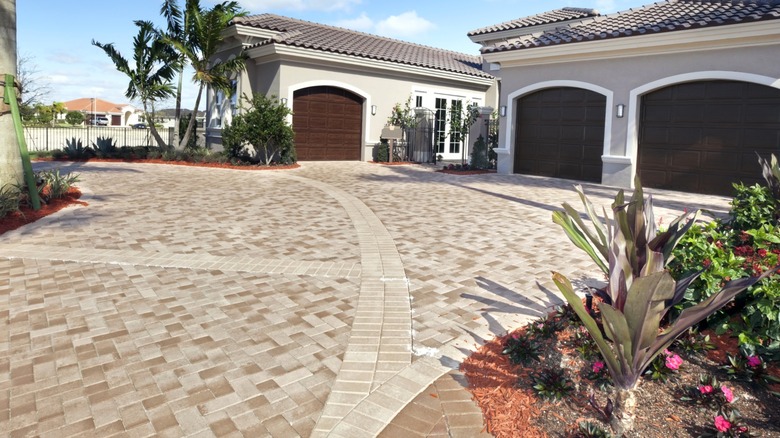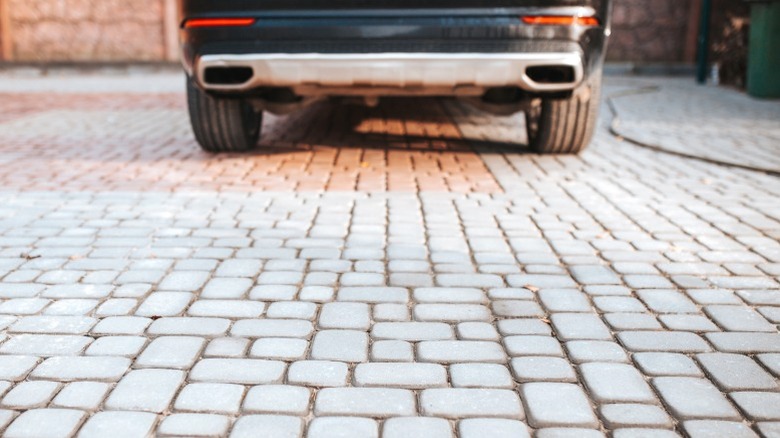Why Smaller Pavers May Be Better For Your Driveway
When you're looking to update your driveway with pavers, large-format varieties can certainly be a tempting idea. Wider panels offer a modern, upscale style and dramatic presence, creating a bold yet elegant aesthetic that's sure to wow anyone who spots it. What could be better to make an excellent first impression for guests and passersby? Well, when you take fashion out of the equation and look at practicality, these bigger pavers can quickly lose their appeal. There are plenty of reasons to opt for the traditional look of smaller pavers, especially when they're going into a driveway.
For a DIYer, smaller paver bricks present a more fluid and fun installation process. They'll take longer to lay than large-format pavers, but small pavers are also more manageable to lift, adjust, and set in place. If any of them shift or get damaged over time, repair and replacement will be a much faster, cheaper, and easier task.
Laying pavers along curving borders is also easier with smaller sizes. To add interest, you can make intricate designs with attractive paver patterns that large pieces won't allow. Set them in running bond patterns to make the driveway appear longer or wider as desired. Or use more ornate designs, like herringbone layouts, to add visual appeal. Alongside the gorgeous look they provide, these patterns will also reinforce the paver joints for a lasting installation. And that brings us to the top reason to pick smaller pavers for a driveway — load-bearing strength.
Smaller pavers can handle your driveway's traffic
Smaller pavers at least 2⅜ inches thick are generally appropriate for a driveway to support parked vehicles. Smaller pieces create more flexibility than large slabs and can adapt better to changing conditions and use. They'll move with sinking soil or frost heave, where the ground swells from freezing water within it. Sudden failure and expensive fixes will be less likely as a result. By contrast, shifting under a large paver can cause voids that weaken the support, making it more prone to cracking under stress. You can sometimes avoid this with a geogrid system that holds the underlying fill in place, but these need extra time and money that you can save by using smaller pavers.
Paver size is a key consideration when installing a paver driveway, but not the only one affecting its strength. Though they aren't as stable, large-format pieces can work with the right preparation. Choosing high-quality paver materials, such as concrete, will provide more durability. Paired with a greater paver thickness, these styles can hold up under the weight of personal vehicles.
Meanwhile, a well-packed, stable foundation and proper edging will prevent shifting. With adequate drainage, issues like settling and frost heave will be less likely as well. When you're set on them, large pavers may work for your driveway with a professional installation. But if you prefer a low-risk route, small pavers offer the stability you'll need in a DIY-friendly format.

